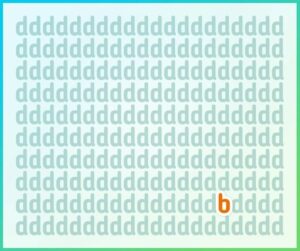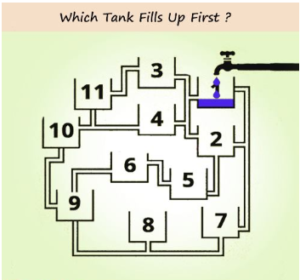Riddles have a remarkable ability to positively impact our brains. They stimulate problem-solving skills, encouraging us to think creatively and approach challenges from different angles. By engaging with riddles, we enhance our vocabulary and language abilities, which enrich our communication. These puzzles engage both sides of the brain, promoting holistic thinking and cognitive flexibility.
 HEADER: “Can You Spot the Odd Letter Out? Most People Miss It! 🔍 Click the First Comment to See If You Got It Right!”
HEADER: “Can You Spot the Odd Letter Out? Most People Miss It! 🔍 Click the First Comment to See If You Got It Right!”
Moreover, solving riddles boosts memory retention, as we are challenged to recall information and make connections. They foster critical thinking, helping us analyze situations and evaluate different perspectives. Engaging with riddles can also serve as a fun mental escape, reducing stress and providing a break from everyday worries.
Riddles require concentration and focus, which improves our attention span. They teach us the value of perseverance, as some riddles may take time to solve. Additionally, they promote social skills by encouraging group discussions and collaborations when shared with friends or family. Successfully solving a riddle boosts our confidence and provides a satisfying sense of achievement.
Riddles ignite our curiosity, prompting us to explore new ideas and concepts. They sharpen our reasoning abilities, enhancing our logic and analytical skills. The joy of solving riddles brings laughter and a sense of playfulness, which can significantly improve our mood. Moreover, they encourage us to be more observant and detail-oriented, as we learn to pick up on subtle clues.
Ultimately, riddles challenge us to think outside the box, sparking innovation and creative solutions. They create an enjoyable learning experience that makes us excited to engage with new challenges, leading to lifelong benefits for our cognitive development.


